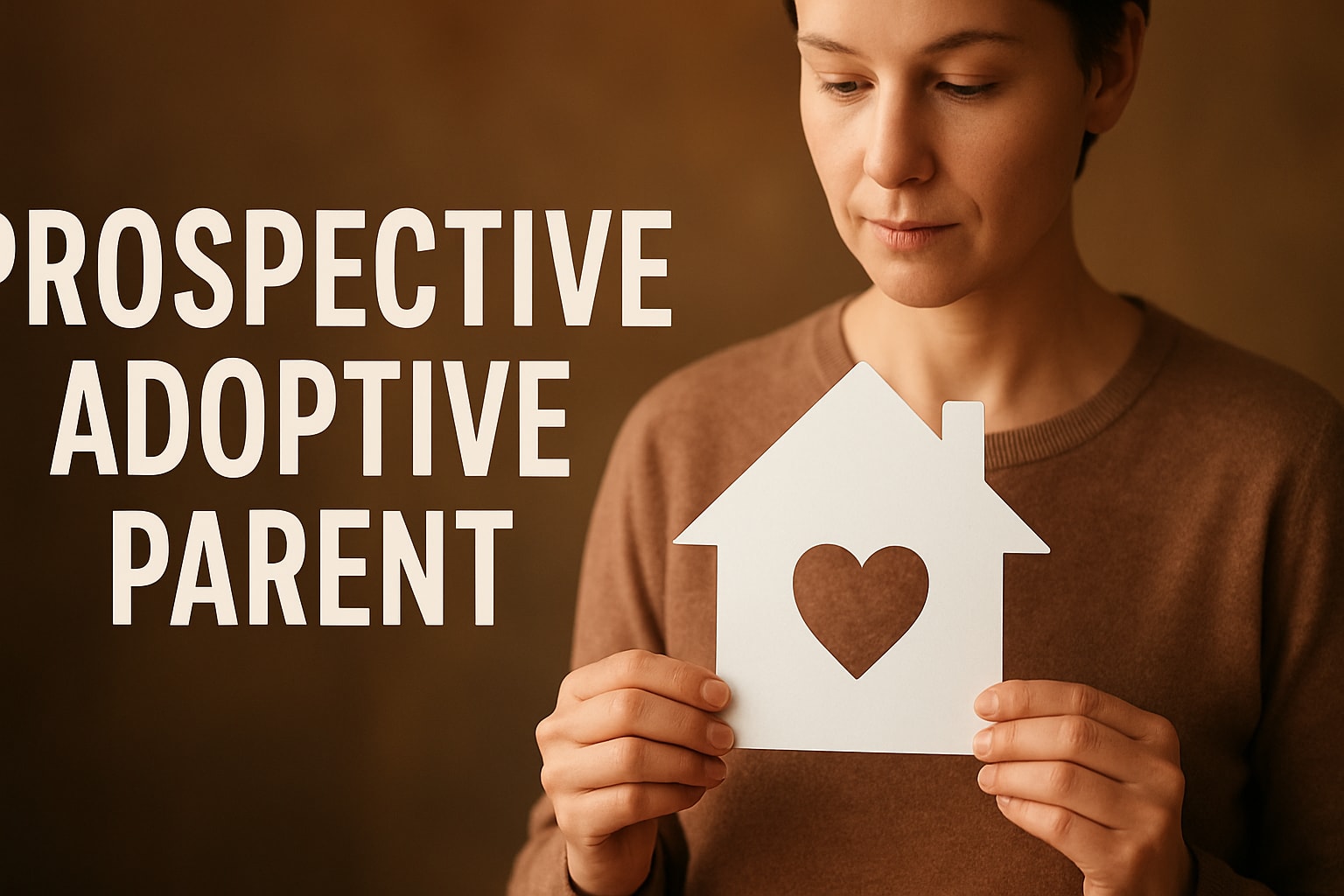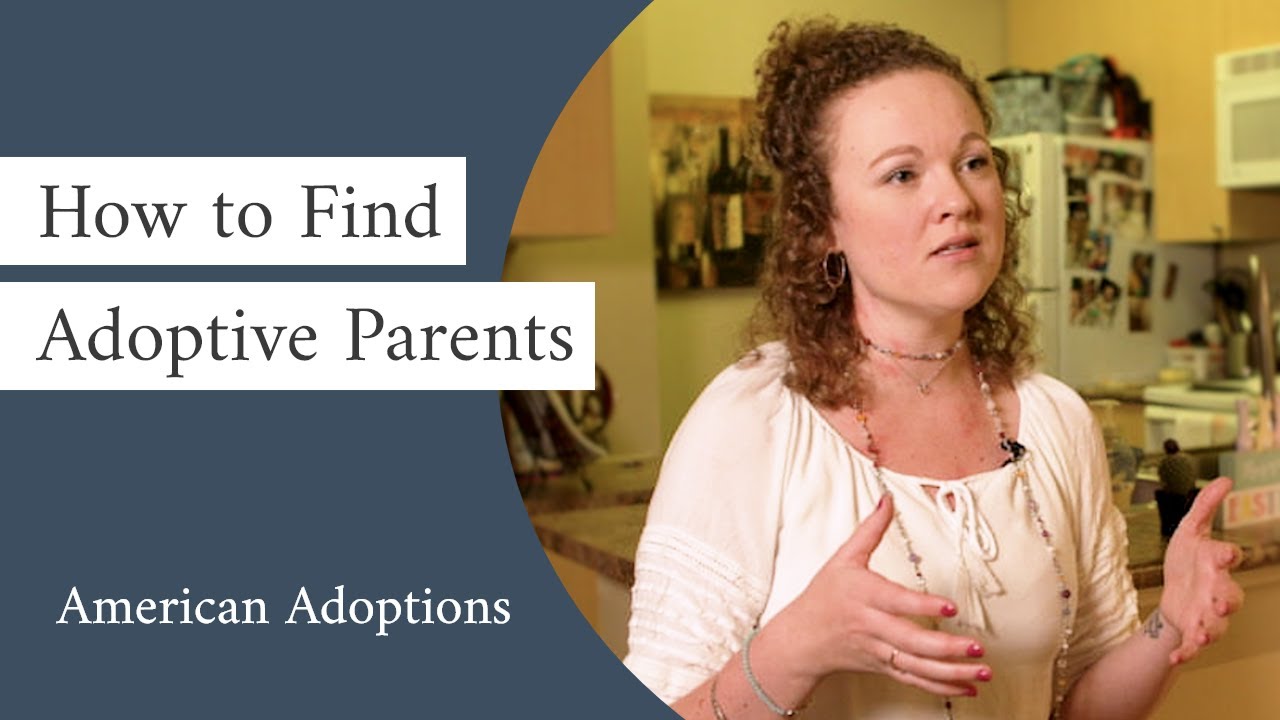
The Essential Prospective Adoptive Parent Guide for 2025
Interest in adoption is surging as more families seek new ways to grow in 2025. If you are a prospective adoptive parent, navigating the process can feel overwhelming, but the right guidance makes all the difference.
This essential guide equips you with practical steps to succeed, covering everything from adoption types and eligibility to legal, financial, and post-adoption support.
Discover current trends, debunk common myths, and learn how to confidently build your family. Ready to take the first step? Keep reading for expert strategies designed just for you.
Understanding Adoption in 2025: Trends, Types, and Key Considerations
The world of adoption is rapidly evolving, and staying informed is crucial for every prospective adoptive parent. In 2025, new trends, shifting demographics, and changing policies are shaping how families are formed. Understanding these developments helps you make confident, informed decisions on your adoption journey.

Current Adoption Trends and Statistics
Adoption in the United States is seeing remarkable changes in 2025. The number of domestic infant adoptions is rising, while international adoption has slightly declined due to new policies and global events. Open adoption, where birth and adoptive families maintain some level of contact, now accounts for over 70 percent of domestic placements.
Demographic shifts reveal a broader spectrum of families. Single-parent adoptions and those by LGBTQ+ individuals are at an all-time high, thanks to more inclusive laws and agency practices. Technology is also transforming the experience for the prospective adoptive parent. Social media and specialized platforms make matching with birth families and accessing support communities faster and more transparent than ever.
Recent legislative developments, such as those discussed in Adoption in the New Congress and Beyond, are influencing adoption procedures and eligibility. As a prospective adoptive parent, staying up to date on these shifts is essential for planning your path forward.
Types of Adoption Explained
Choosing the right type of adoption is a major decision for any prospective adoptive parent. There are several main options, each with unique processes, timelines, and requirements:
| Type | Typical Timeline | Key Features |
|---|---|---|
| Domestic Infant | 12–24 months | Open/closed, agency or independent |
| International | 24–48 months | Country-specific, travel, policy shifts |
| Foster Care | 6–18 months | Older children, sibling groups, reunification possible |
| Step-parent/Relative | 3–6 months | Legal simplification, family connection |
Domestic infant adoption often involves working with agencies and building a relationship with birth parents. International adoption requires navigating country-specific laws and sometimes lengthy waits. Foster care adoption offers the chance to provide a permanent home for children in need, with many states streamlining the process for qualified families. Step-parent and relative adoptions are increasingly common, reflecting the diverse realities of modern families. As a prospective adoptive parent, comparing these options side by side can clarify which path aligns with your values and circumstances.
Key Considerations for Prospective Parents
Every prospective adoptive parent must assess their readiness on multiple fronts. Emotional preparation is key—adoption is a lifelong journey filled with joys and challenges. Financial planning is also essential, as costs vary widely and unexpected expenses can arise.
It is vital to research thoroughly and reflect on your motivations. Are you open to different types of adoption? Can your lifestyle support the needs of an adopted child? Debunk common myths, such as the belief that only married couples can adopt or that adoption is always prohibitively expensive.
Consider stories of thriving adoptive families who faced obstacles but found lasting fulfillment. For example, a single prospective adoptive parent may discover a strong support network through local groups, helping them feel empowered and informed. By addressing these key considerations early, you position yourself for a successful, rewarding adoption experience.
Step 1: Determining Eligibility and Preparing to Adopt
Becoming a prospective adoptive parent in 2025 means preparing for a journey that starts with understanding eligibility, emotional readiness, and financial realities. Taking these steps now sets a solid foundation for a successful adoption experience.

Adoption Eligibility Requirements in 2025
Every prospective adoptive parent must meet certain requirements before starting the process. These can vary by state and adoption type, but most agencies and authorities look for:
- Minimum age (often 21 or older)
- Stable marital status (single parents and LGBTQ+ applicants are increasingly accepted)
- Proof of residency and citizenship
- Background checks for criminal history and child abuse
- Home study approval, including interviews and home inspections
- Physical and mental health screenings
In 2025, there is continued progress in welcoming LGBTQ+ and single parents. Agencies are updating their criteria to reflect modern family structures. For a detailed breakdown of who can adopt and what is required, visit Adoption Eligibility and Requirements.
If you are a prospective adoptive parent, it is essential to review both state and agency-specific guidelines. This increases your chances for a smooth and timely approval.
Preparing Emotionally and Practically
Before moving forward, a prospective adoptive parent should assess emotional and practical readiness. Adoption is a life-changing commitment, so consider:
- Attending counseling or joining support groups for adoptive families
- Reflecting on motivations and expectations for adopting
- Identifying potential challenges and planning for them
Ask yourself: Are you open to ongoing contact with birth families? Can you handle uncertainty in timelines? Preparing your home and family is just as important. Talk to children or relatives about what to expect and create a welcoming, safe space for your future child.
By taking these steps, a prospective adoptive parent develops resilience, confidence, and a realistic view of the adoption journey.
Financial Planning for Adoption
Financial preparation is crucial for every prospective adoptive parent. Adoption costs can differ greatly based on the chosen path:
| Adoption Type | Average Cost (2025) |
|---|---|
| Domestic Infant | $25,000 – $45,000 |
| International | $35,000 – $55,000 |
| Foster Care | $0 – $3,000 (often subsidized) |
Explore resources such as:
- Grants and loans for adoptive families
- Employer adoption assistance programs
- State and federal tax credits and incentives
Careful budgeting and research help a prospective adoptive parent avoid surprises. Start gathering financial documents early and ask agencies about payment plans or available aid. This proactive approach ensures you are prepared for every step of the process.
Step 2: The Adoption Process—A Step-by-Step Roadmap
Embarking on the adoption journey can feel overwhelming for any prospective adoptive parent. Understanding each step ahead of time will transform uncertainty into confidence. This section delivers a clear, actionable roadmap, breaking down the process into manageable stages so you can move forward with clarity and purpose.

Choosing the Right Adoption Path
The first pivotal decision for any prospective adoptive parent is selecting the best adoption path. There are several options, each with unique benefits and challenges. Take a look at the comparison below to help clarify your direction:
| Adoption Path | Key Features | Typical Timeline | Best For |
|---|---|---|---|
| Agency Adoption | Full support, structured process | 1-2 years | First-time adoptive families |
| Independent | Direct match, less formal | 6-18 months | Those with established connections |
| Foster-to-Adopt | Foster care leads to adoption | 1-3 years | Flexible, open to older children |
As a prospective adoptive parent, reflect on your family’s needs, openness to different backgrounds, and level of desired involvement. If you’re unsure where to begin, consult with multiple agencies or adoption attorneys. Ask about their experience, support services, and success rates.
For a deeper dive into each adoption type, Understanding the Adoption Process offers a comprehensive step-by-step guide that many families find invaluable.
Write down your top questions before consultations. Consider how each path aligns with your timeline, budget, and long-term family goals. This groundwork will ensure that every prospective adoptive parent makes informed, empowered decisions.
The Home Study Process
Every prospective adoptive parent must complete a home study. This thorough evaluation ensures your home and lifestyle are ready for a child. The process involves interviews, background checks, document collection, and several home visits by a licensed social worker.
Here are common elements of a home study:
- Personal interviews with all household members
- Financial statements and tax records
- Health screenings for applicants
- Child abuse and criminal background checks
- Home safety inspection
To prepare, gather necessary documents early and be honest during interviews. If you have concerns, discuss them with your social worker. Many prospective adoptive parents worry about being judged, but the focus is on safety, stability, and readiness.
Delays often occur due to incomplete paperwork or scheduling conflicts. Stay proactive by responding quickly to requests and keeping communication open. Remember, the home study is not about perfection but about ensuring the best environment for a child’s well-being.
Matching with a Birth Parent or Child
Once approved, the next stage is matching. For a prospective adoptive parent, this is often the most emotional step. Matching varies depending on your chosen path:
- Domestic adoptions: Agencies connect you with expectant parents through adoption profiles and networking events.
- International adoptions: Matches are coordinated by foreign agencies based on eligibility and child needs.
- Foster-to-adopt: Children are matched based on age, needs, and your family’s strengths.
As a prospective adoptive parent, be open to the range of possibilities. Prepare a compelling profile that shares your story, values, and hopes for your future child. Keep in mind that timelines can be unpredictable, so patience and flexibility are crucial.
Managing expectations is key. Some matches happen quickly, while others take months. Stay connected to your agency for updates and support. Celebrate small steps and remember that every family’s journey is unique.
Placement and Finalization
After a successful match, you’ll move into the placement phase. This includes pre-placement visits, where you meet and bond with the child. These visits help both you and the child adjust gradually to the new family dynamic.
The legal process begins next. Your attorney or agency will guide you through paperwork, court hearings, and required waiting periods. Each state or country has its own legal requirements, so follow all instructions carefully. Prospective adoptive parents should keep records organized and attend all necessary appointments.
Typical timelines for placement and finalization range from a few months to over a year, depending on the adoption type and jurisdiction. Potential roadblocks include legal challenges or changes in birth parent circumstances. Stay in close communication with professionals and lean on your support network.
Finalization is a cause for celebration. Once the court approves the adoption, you become the child’s legal parent for life. This milestone marks the start of your new family chapter, filled with opportunity, growth, and love.
Step 3: Legal and Ethical Considerations in Adoption
Understanding the legal and ethical landscape is crucial for any prospective adoptive parent. Laws and best practices shift each year, so staying updated ensures your adoption journey is smooth and secure. Let’s break down what you need to know to navigate 2025’s adoption environment with confidence.

Navigating Adoption Laws in 2025
Adoption laws in the United States are a dynamic blend of federal and state regulations. Each state sets unique requirements for the prospective adoptive parent, including residency, age, and background checks. In 2025, several states have updated their policies to streamline the process for single parents and LGBTQ+ families.
Federal law also plays a significant role, especially for interstate and international adoptions. If you plan to adopt across state lines, the Interstate Compact on the Placement of Children (ICPC) ensures children move safely and legally between states. International adoption involves even more complex legal steps such as immigration, citizenship, and compliance with the Hague Convention. For a detailed look at these procedures and updates for 2025, you can visit the USCIS Adoption Processes Overview.
Recent years have seen legal improvements that help prospective adoptive parents, like expanded tax credits and more uniform home study requirements. Yet, legal hurdles remain, so understanding both state and federal regulations is vital.
Ensuring Ethical Adoption Practices
Ethical adoption starts with transparency and informed consent. Every prospective adoptive parent should work with agencies or attorneys who explain each step clearly, ensuring no party is left in the dark. Open communication is vital, especially regarding the rights of birth parents and the child.
Beware of adoption scams and unethical facilitators. In 2025, online adoption matching has grown, but so have risks. Always verify credentials and ask for references. Reputable professionals will never ask for large, upfront fees without clear, itemized services.
Open adoption agreements are now more common, offering ongoing contact between adoptive and birth families. While these arrangements can benefit everyone involved, they require honesty and clear boundaries. A prospective adoptive parent must understand that ethical practices protect both the child’s welfare and the family’s future.
Working with Legal Professionals
Hiring an experienced adoption attorney is a smart move for any prospective adoptive parent. Attorneys can interpret complex laws, prepare documents, and represent you in court. They also help resolve issues if unexpected challenges arise, like contested adoptions or paperwork delays.
During the legal process, expect to attend hearings, submit thorough documentation, and respond to court requests. Most attorneys provide a step-by-step timeline so you know what’s next. Real-life examples show that families who partner with trusted legal experts have smoother, less stressful adoptions.
In summary, legal and ethical preparation is essential for the prospective adoptive parent. Take time to research, ask questions, and choose partners who share your commitment to a safe, ethical adoption journey.
Step 4: Life After Adoption—Support, Resources, and Building Your Family
Adoption is a lifelong journey, and the transition does not end the moment you welcome a child home. Every prospective adoptive parent faces a unique blend of joy, adjustment, and new responsibilities. Recognizing the need for ongoing support and resources is crucial to building a thriving family after adoption.
Post-Adoption Adjustment and Support
For every prospective adoptive parent, the first months after placement are a period of transformation. Both parents and children must adapt to new routines, roles, and emotional landscapes. It is normal to experience a mix of excitement, uncertainty, and even anxiety as everyone settles in.
Common challenges include bonding, managing expectations, and helping children process their own feelings. Many families benefit from joining counseling sessions, support groups, or online communities specifically designed to help adoptive families connect and share advice.
To make the transition smoother, consider these strategies:
- Attend post-adoption workshops or webinars
- Join local or online parent support groups
- Seek professional counseling if needed
Remember, you are not alone. Every prospective adoptive parent can access a wealth of resources to help build resilience and foster a supportive environment for their family.
Navigating Relationships with Birth Families
Deciding how to approach relationships with birth families is a significant consideration for every prospective adoptive parent. Open adoption is increasingly common, offering benefits like access to medical history and a sense of identity for the child. However, it also requires clear boundaries and honest communication.
Tips for managing birth family relationships:
- Establish expectations early, discussing frequency and method of contact
- Prioritize your child's emotional well-being in all decisions
- Use written agreements to clarify roles and boundaries
Real-life stories highlight the value of open adoption, with many families reporting greater understanding and fewer unanswered questions as children grow. Whether your adoption is open or closed, ongoing dialogue within your family about these relationships is essential for long-term harmony and security.
Lifelong Adoption Education and Advocacy
The role of a prospective adoptive parent continues well beyond finalization. Lifelong learning is key to helping your child understand their story and identity. Discussing adoption openly, in age-appropriate ways, builds trust and self-esteem.
Consider these lifelong steps:
- Talk about adoption regularly, adjusting your language as your child matures
- Participate in adoption awareness events or community advocacy
- Seek out books, podcasts, and educational materials to stay informed
By embracing education and advocacy, every prospective adoptive parent not only supports their own family but also contributes to a more informed and compassionate community. Stay connected to resources, and never hesitate to seek support as your family grows and changes.
Frequently Asked Questions for Prospective Adoptive Parents
Are you a prospective adoptive parent with questions about the 2025 adoption process? You're not alone. Below, we answer the most common questions to help you approach adoption with confidence and clarity.
What is the average wait time for adoption in 2025?
The average wait time for a prospective adoptive parent depends on the type of adoption chosen. Domestic infant adoptions typically take 12-24 months. International adoptions can range from 18 months to several years, depending on the country and changing policies. Foster care adoptions may have shorter waits, especially if adopting older children or sibling groups. Each path has unique timelines, so planning ahead is key for every prospective adoptive parent.
How do I choose between domestic, international, and foster care adoption?
Selecting the right path as a prospective adoptive parent begins with honest self-assessment. Consider your family's preferences, openness to different backgrounds, and desired level of contact with birth families. Domestic adoption offers more opportunities for open relationships, while international adoption may appeal to those open to cultural diversity. Foster care adoption often suits those ready to support children who have experienced trauma or loss. Research, talk to other adoptive families, and attend informational sessions to find your best fit.
What are the most common reasons adoptions are delayed or disrupted?
Several factors can delay or disrupt adoption for a prospective adoptive parent. Common causes include incomplete paperwork, issues during the home study, or changes in birth parent decisions. Understanding the Home Study Process Explained can help you avoid preventable setbacks. Additionally, state-specific eligibility requirements may introduce delays, so check the Adoption Eligibility Requirements by State to ensure you meet all criteria.
How can I prepare my extended family for adoption?
As a prospective adoptive parent, preparing your extended family is essential. Start by sharing honest information about adoption, addressing common myths, and inviting them to attend support group meetings or informational workshops. Encourage open dialogue and answer their questions patiently. This support network will be invaluable both during and after the adoption process.
What support is available for adoptive families post-placement?
After placement, a prospective adoptive parent can access a variety of support services. These include counseling, peer support groups, and online communities specifically for adoptive families. Many agencies offer post-adoption resources and workshops, while national organizations provide educational materials and helplines. Staying connected with these resources helps families adjust and thrive.
Are there specific resources for LGBTQ+ or single adoptive parents?
Absolutely. Many organizations and agencies offer tailored support for LGBTQ+ and single prospective adoptive parent applicants. These may include dedicated support groups, legal guidance, and advocacy networks. Connecting with others who share similar experiences can provide insight, encouragement, and a sense of belonging throughout your journey.
Can I adopt if I already have biological children?
Yes, being a prospective adoptive parent with biological children is common. Agencies often see this as a positive, as existing children can help an adopted child adjust. It’s important to prepare your children for the transition, maintain open communication, and ensure everyone feels included and supported.
As you explore the ins and outs of adoption in 2025—whether you’re figuring out eligibility, navigating legal steps, or preparing for the emotional journey ahead—remember, you don’t have to do it alone. We’re here to support families just like yours, offering personalized guidance, legal expertise, and even financial resources to make the process smoother. If you’re ready to take the next step toward building your family, don’t miss out on exclusive savings: you can get $100 off the cost of your home study when you work with us. Take this opportunity and start your adoption journey today— $100 Off Cost of Home Study .


